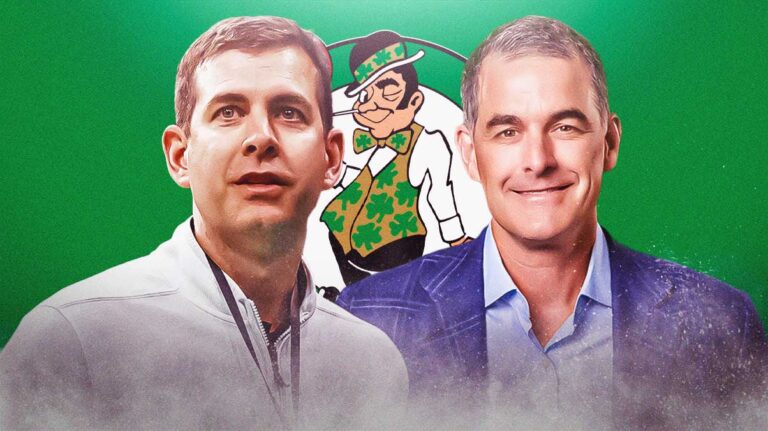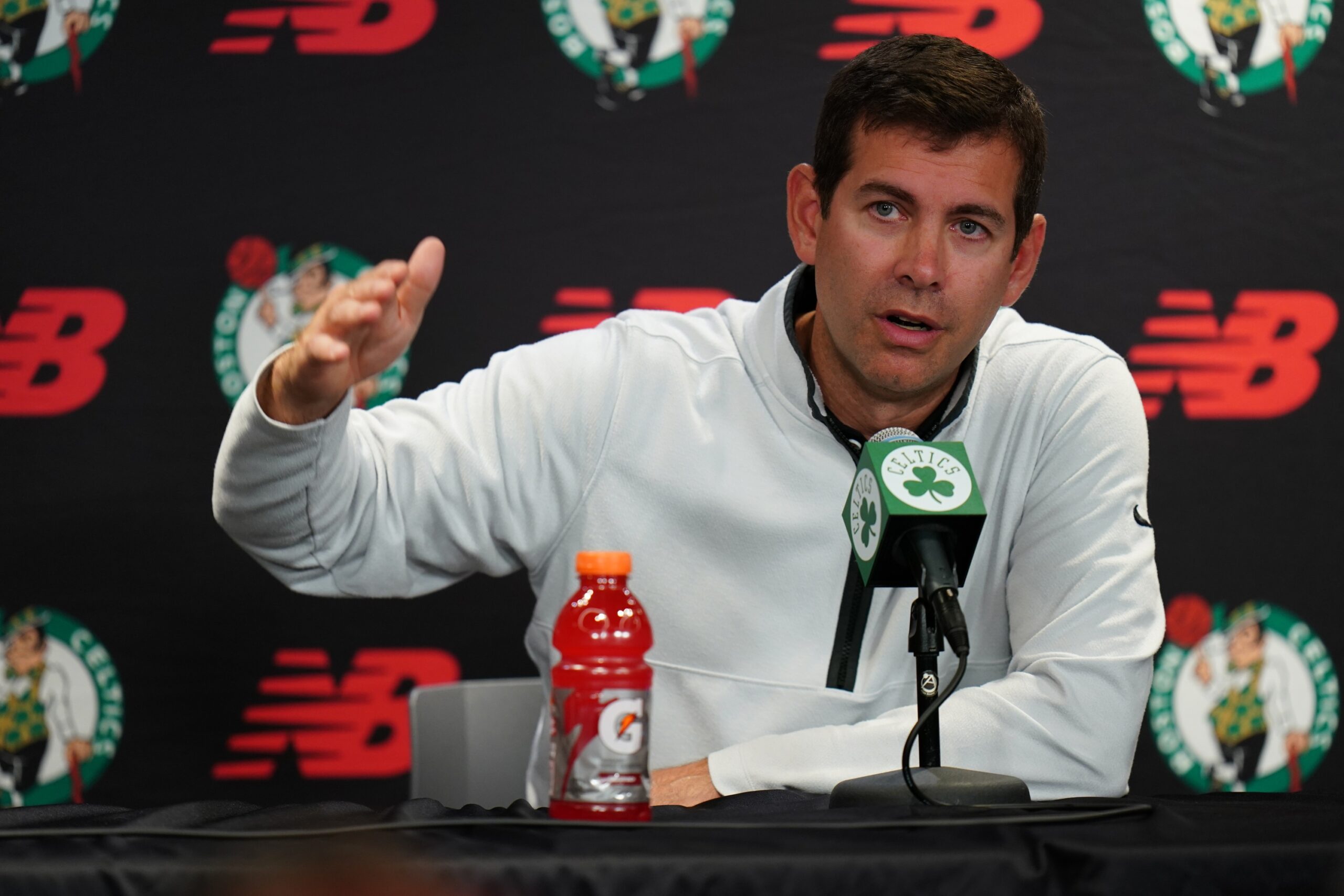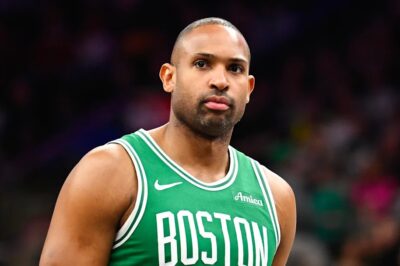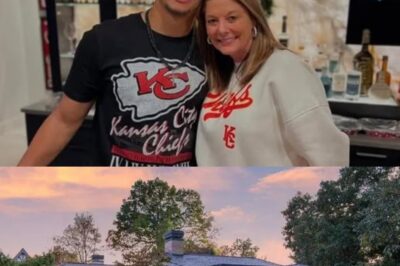Brad Stevens reveals his ‘only’ demand to new Boston Celtics owner……

**Brad Stevens Reveals His ‘Only’ Demand to New Boston Celtics Owner: A Commitment to Championship Culture and Sustainable Success**
In the ever-evolving world of professional sports, the relationship between team ownership, management, and coaching is crucial to a franchise’s success. Over the years, ownership groups have come and gone, but it is the culture they foster and the vision they share with their leadership that often determines the long-term future of a team. For the Boston Celtics, a franchise with a rich history of championships and one of the most passionate fanbases in the world, the recent change in ownership represents a new chapter. However, as the dust settles on the transition, one man remains a pivotal figure in the team’s pursuit of greatness: Brad Stevens.
Brad Stevens, who has been with the Celtics in some capacity for nearly a decade, has always been regarded as one of the brightest minds in the NBA. From his initial years as a head coach, where he quickly earned a reputation for his tactical acumen, to his more recent role as the team’s President of Basketball Operations, Stevens has been instrumental in shaping the Celtics’ identity. Now, with the arrival of a new ownership group, Stevens has revealed his “only” demand to the Celtics’ new owner: a commitment to building a sustainable championship culture that will keep the team competitive for years to come.
Stevens’ position, though simple in its premise, carries significant weight. As one of the most successful executives in the NBA, his request reflects both his deep understanding of what it takes to win in the NBA and his long-term vision for the Celtics. In this article, we’ll explore Stevens’ philosophy for team-building, his demand for a sustained commitment to championship-level basketball, and the implications of this request for both the Celtics and the broader NBA landscape.
A New Era: Transitioning to New Ownership
The Boston Celtics have seen a change in ownership over the years, but the most recent transition—marked by a shift in the leadership of the ownership group—represents a critical juncture for the team. As the Celtics have undergone several phases of rebuilding and retooling, the arrival of fresh ownership opens the door to new possibilities, particularly in terms of strategy, investment, and overall team philosophy. While change at the top can often lead to uncertainty, the Celtics’ fanbase has remained remarkably consistent in its desire for one thing: another championship.

For Brad Stevens, who took over as the Celtics’ President of Basketball Operations after stepping down as head coach in 2021, the arrival of new ownership provides an opportunity to solidify the team’s future. The transition offers him the chance to further refine the team’s direction and ensure that the Celtics remain one of the most successful and competitive teams in the NBA. But as Stevens works with the new ownership group, he has made it clear that there is one overarching principle that must govern all decision-making: the commitment to creating a championship culture that will last well beyond any individual season.
Brad Stevens’ Unique Leadership Style
Brad Stevens is widely regarded as one of the sharpest basketball minds in the NBA, a reputation that has only been further solidified by his successful transition from coach to front-office executive. Stevens’ leadership style is marked by a calm, analytical approach to decision-making, and he is known for prioritizing the development of both players and organizational culture. Stevens’ ability to connect with players, both on a personal and professional level, has been one of his greatest strengths. His meticulous approach to basketball, combined with his keen understanding of team dynamics, has allowed him to thrive as both a coach and executive.
When Stevens was elevated to the role of President of Basketball Operations, he took on the responsibility of managing the Celtics’ roster and making strategic decisions that would guide the team into its next phase. His approach has always been rooted in collaboration—working with coaches, scouts, analysts, and ownership to ensure that every decision is aligned with the team’s long-term goals. However, Stevens’ focus on building a culture of sustainable success goes beyond just the tactical aspects of the game. For him, the foundation of any successful franchise lies in its commitment to fostering an environment where talent is developed, where players are empowered to reach their full potential, and where the pursuit of championships is a year-round endeavor.
The Demand: A Commitment to Championship Culture
With the arrival of a new ownership group, Stevens took the opportunity to make his “only” demand clear: that the team’s ownership must commit to building and maintaining a sustainable championship culture. For Stevens, this isn’t just about winning one title or having a successful season; it’s about creating a long-term infrastructure that ensures the Celtics remain a championship contender for years to come. This is the essence of what Stevens has built in his tenure with the Celtics and what he believes is necessary for future success.
The idea of a “championship culture” might sound abstract to some, but Stevens has outlined key components that make it a tangible and achievable goal. The foundation of this culture begins with clear communication between ownership, the front office, and the coaching staff. Stevens has always emphasized the importance of a unified approach, where everyone in the organization shares a collective vision. This, he believes, is crucial for navigating the ups and downs of an 82-game regular season and the intensity of the postseason.
Another cornerstone of the championship culture Stevens envisions is player development. Stevens has consistently emphasized that the Celtics must not only pursue elite talent but also prioritize the growth of that talent over time. Developing young players is essential to sustaining success in the NBA, and Stevens has shown that he values long-term player development over short-term success. Whether it’s building around young stars like Jayson Tatum and Jaylen Brown or nurturing younger role players, Stevens has always believed that a commitment to player development is crucial for maintaining a championship-caliber team.
In addition to player development, Stevens’ vision for a championship culture also revolves around making smart, strategic decisions in terms of roster construction and cap management. This requires a delicate balance between investing in proven superstars and cultivating depth throughout the roster. For Stevens, roster construction isn’t just about landing the biggest names; it’s about finding the right fit and ensuring that the team’s system allows each player to thrive. This approach has paid off for the Celtics in recent years, as they have developed into a legitimate championship contender, with a roster that is both deep and well-coached.
The Role of Ownership: Financial Commitment and Long-Term Vision
For Stevens’ vision of a sustainable championship culture to come to fruition, the new ownership group must align with his philosophy and make a long-term financial commitment to building a title-contending roster. Ownership plays a pivotal role in shaping the direction of any franchise, and in the case of the Celtics, this means making the necessary investments in player acquisitions, coaching, and infrastructure.
In the NBA, a commitment to winning at the highest level often requires a willingness to spend on talent. This includes not only acquiring high-profile players through trades or free agency but also ensuring that the team has the resources to retain key players, especially as their contracts come up for renewal. The Celtics have been fortunate in recent years to have two cornerstone players—Tatum and Brown—who are among the best in the league. However, as Stevens knows, keeping these players, as well as building a complementary roster, requires a continued investment of resources. Stevens has made it clear that he expects the ownership group to fully support this vision by committing the necessary financial resources to keep the team competitive.
At the same time, Stevens also understands that a championship culture isn’t just about spending money; it’s about creating an environment where everyone in the organization—ownership, front office, coaches, players—has a shared commitment to excellence. The new owners of the Celtics must foster a culture of accountability, where the team’s collective success is paramount, and where each individual’s role in the pursuit of a championship is clearly defined.
A Roadmap for Success: Key Components of Stevens’ Vision
Brad Stevens’ vision for the Boston Celtics is one that blends the best of both worlds: the ability to compete at the highest level in the present while also building for the future. His approach is grounded in several key principles:
1. **Team Culture**: A successful team culture goes beyond the X’s and O’s of basketball. Stevens believes that players must be held accountable not only for their on-court performance but also for their contribution to the team’s culture. The Celtics must continue to cultivate a sense of unity, discipline, and professionalism both on and off the court.
2. **Player Development**: Sustained success in the NBA requires ongoing player development. For Stevens, this means investing in the growth of young talent while also providing veterans with the tools they need to continue evolving. The Celtics’ developmental program will be critical in ensuring that their future remains bright.
3. **Roster Construction**: While the Celtics currently have a strong core, Stevens understands the importance of continuing to refine and build the roster. This involves making smart trades, acquiring complementary pieces, and ensuring that the roster is balanced and capable of competing with other top teams.
4. **Sustainable Success**: Unlike teams that are built for short-term glory, Stevens believes that the Celtics must prioritize sustainable success. This means consistently contending for championships year in and year out, rather than focusing on a single season or championship window.
The Celtics’ Championship Window Is Wide Open
Brad Stevens’ “only” demand to the new Boston Celtics ownership reflects a deep commitment to the long-term success of the franchise. His vision is one of sustainability, player development, and creating a championship culture that will carry the Celtics into future years of success. As the franchise looks to secure its 18th championship, Stevens’ leadership, combined with the financial and strategic backing of the ownership group, has the potential to return the Celtics to the pinnacle of the NBA.
The Celtics’ championship window is wide open, and with Stevens at the helm, the team’s future has never looked brighter. As the new ownership group works to align with Stevens’ vision, it is clear that the foundation for sustained success is being laid in Boston. The next few years will be crucial in determining whether the Celtics can capture their next championship, but one thing is certain: under Stevens’ leadership, the pursuit of greatness is always the top priority.
News
NBA teams are preparing to steal Al Horford from the Celtics (again)
NBA teams are preparing to steal Al Horford from the Celtics (again) Boston Celtics, Al Horford, NBA free agency, NBA…
BREAKING NEWS: Patrick Mahomes Purchased His Mother Randi Her Dream House
In an awe-inspiring act of gratitude and love, Patrick Mahomes, the celebrated quarterback of the Kansas City Chiefs, along with…
‘I was more worried about being drafted than I was about being a dad’: Jayson Tatum lifts the lid on keeping his girlfriend’s pregnancy a secret from the NBA in 2017 – and how he was ‘terrified’ teams wouldn’t pick him
‘I was more worried about being drafted than I was about being a dad’: Jayson Tatum lifts the lid on…
Jason Tatum Lifestyle, Girlfriend, Son, Family, Boston celtics, and Net Worth
Jayson Tatum, the Boston Celtics’ prodigious forward, has captivated the basketball world with his electrifying performances and compelling personal narrative….
Jayson Tatum and his rich life with his son in Boston, worthy of the position of the Celtics’ highest paid player
Jayson Tatum and his rich life with his son in Boston, worthy of the position of the Celtics’ highest paid…
“Almost evicted out of our house, had to borrow food from our neighbors so I could eat” – Jayson Tatum describes the struggle his mother went through to help him become an NBA star
“Almost evicted out of our house, had to borrow food from our neighbors so I could eat” – Jayson Tatum…
End of content
No more pages to load












